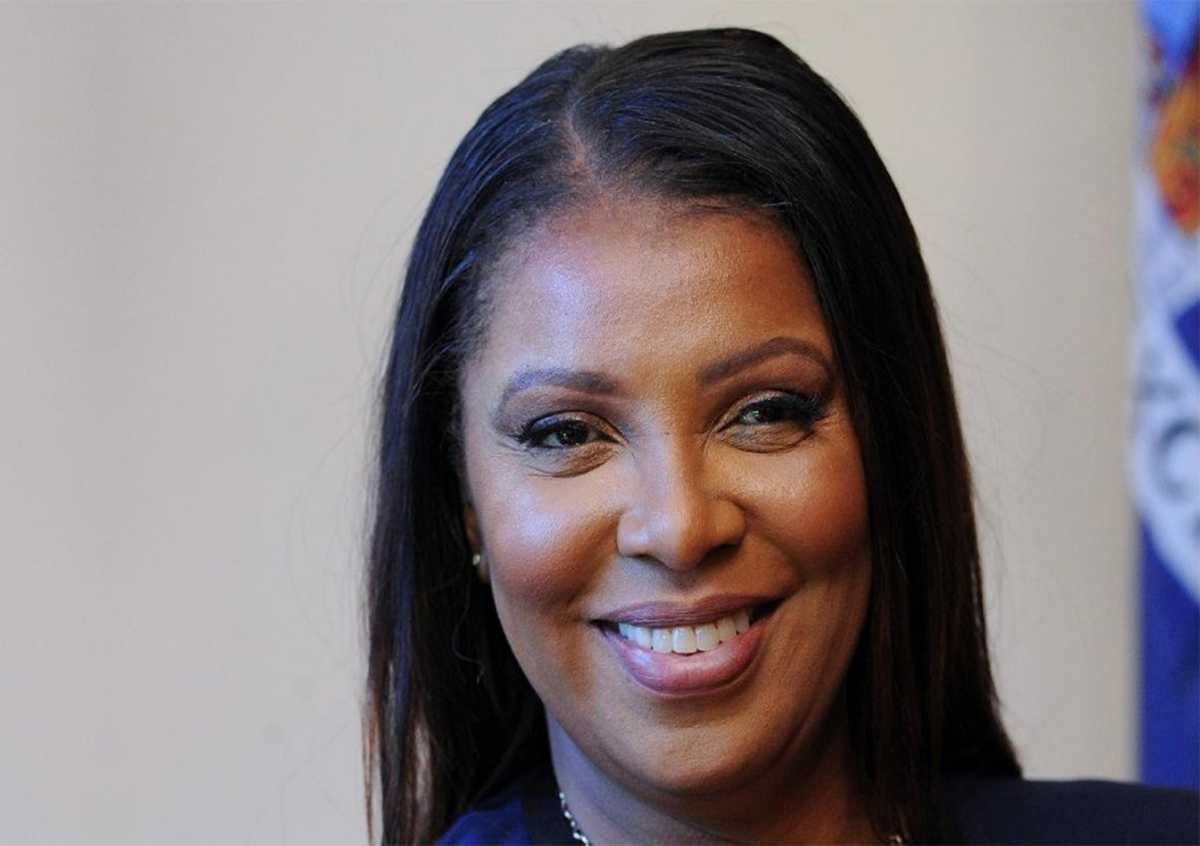New York Attorney General Letitia James on Friday, Feb. 9 welcomed a decision by the US District Court for the Northern District of New York in the case of Variscite v. New York denying a temporary restraining order and preliminary injunction on the state’s cannabis licensing.
“I am pleased with today’s court decision rejecting attempts to prevent New York from having an equitable cannabis industry,” James said.
“This is an important victory in our efforts to ensure that disproportionately impacted communities are given their fair share in the legal cannabis industry,” she added.
In its legal brief, the US District Court for the Northern District of New York said the plaintiffs Variscite NY Four, LLC and Variscite NY Five, LLC commenced this action on Dec. 18, 2023 against Defendants New York State Cannabis Control Board, New York State Office of Cannabis Management (OCM), Tremaine Wright and Chris Alexander alleging that New York’s Adult Use Application Program, which accepted applications for adult use retail dispensary cannabis licenses, from Oct. 4, 2023 through Dec. 18, 2023, violates the dormant Commerce Clause.
On Dec. 21, 2023, the court said the plaintiffs filed a motion by order to show cause for a temporary restraining order and preliminary injunction seeking to enjoin defendants from issuing Adult Use.
On Dec. 28, 2023, the court said the defendants submitted a Letter Brief opposing the Motion.
On Jan. 9, 2024, the court directed expedited briefing on the motion, and, on Jan. 16, 2024, the defendants filed an opposition. On Jan. 26, 2024, the court held a hearing on the motion.
The complaint also alleged that the defendants violated Section 10(19) of New York’s Marihuana Regulation & Taxation Act (Cannabis Law), which provides that “the initial adult-use cannabis retail dispensary license application period shall be opened for all applicants at the same time.”
The court found that enjoining defendants from issuing licenses under the Adult Use or CAURD Application Programs “would not serve the public interest and that the balance of equities tips in favor of defendants.”
Meantime, on Monday, OCM published the January enforcement action update against unlicensed cannabis shops across the state.
During the month of January, OCM said its investigators, as well as those from the Department of Taxation and Finance (DTF), inspected 60 shops, including 20 re-inspections, suspected of selling unlicensed cannabis.
OCM said these inspections resulted in the seizure of 371 pounds of flower, 359 pounds of edibles, and 29 pounds of concentrate, with an estimated value of $3,391,545.
These actions bring the total of inspections to 470 locations, 125 of which have been re-inspected, to yield over 13,000 pounds of seized illicit cannabis worth more than $63 million, OCM said.
“OCM and DTF investigators will continue inspections each and every week across the state in 2024 to shut down illicit operators as a new wave of legal dispensaries open their doors for business,” OCM said.
“By taking decisive action against unlicensed cannabis businesses, New York State is making significant strides towards shutting down unlawful and unlicensed cannabis operations that jeopardize public safety, consumer well-being, and the integrity the state’s legal cannabis market,” it added.
Chris Alexander, executive director of The New York State Office of Cannabis Management, said that, “as New York state welcomes its 50th brick and mortar adult-use dispensary to the growing community of small and mid-size businesses operating across the state, we are looking to seize on the massive opportunity ahead of us in 2024.
“We know that New Yorkers choose to shop at legal, adult-use dispensaries because they know their cannabis products were grown right here in New York, that these cannabis products have been tested, and that these small businesses are investing in our communities,” he said.
“We thank Gov. Hochul for her steadfast commitment to making sure that our mission of delivering the most equitable adult-use cannabis market isn’t hampered by illicit operators,” Alexander added. “We will continue to seize illicit product across the state each and every week.”
Alexander said fines for the illegal sale of cannabis start at $10,000 per day and can rise up to $20,000 per day for the most egregious conduct.
He said an additional fine of $5,000 can be levied for removal of the Order, and the inspected businesses may also be subject to additional violations and penalties under the Tax Law.
Alexander said the enforcement legislation passed in May 2023 also authorizes OCM to seek a state court order to ultimately padlock businesses found to be in repeated violation of the law. In addition, the law makes it a crime to sell cannabis and cannabis products without a license.
To bring many levels of government together to combat the illicit sale of cannabis, Governor Kathy Hochul previously announced partnerships between OCM and the Office of the Attorney General (OAG) through which municipalities across the state can receive training on how to utilize a particular provision – Section 16-A – of the new enforcement law signed by Hochul in May 2023 to pursue padlocking orders in State Court.
Sect. 16-A authorizes local governments, including county attorneys, with OCM’s approval, to pursue padlocking orders from a court against an unlicensed cannabis business found to be engaged in egregious conduct.
“This authority significantly augments the ability for different levels of government to work together to shut down illegal cannabis operators,” OCM said.
In addition to these new partnerships with localities, the governor announced that additional State agencies will now be bringing the weight of their business enforcement powers to bear as part of the state’s creative and aggressive approach to combating the illicit market.
Hochul said the Department of Labor and the Workers Compensation Board are joining these efforts to ensure businesses selling cannabis without a license are compliant with New York State labor and workers compensation laws.
“This approach, which combines the enforcement powers of labor law, tax law, and cannabis law, can result in non-compliant business owners potentially facing tens of thousands of dollars in penalties as the result of a single inspection and violations, significantly enhances the state’s ability to crack down on those who engage in illicit sales, and reaffirms the governor’s deep commitment to ensuring that the law is being followed and that New Yorkers are protected from potentially unsafe products,” OCM said.
While these actions represent meaningful progress, it said Hochul is working to strengthen measures to deter illicit activity and facilitate the growth of a legal market.
In her 2024 Executive Budget, OCM noted that the governor has proposed strengthening enforcement authority to expedite the closure of unlicensed businesses and deter this illicit activity.
It said measures will include expanding the powers of OCM to streamline padlocking of illicit shops, authorizing local governments to execute OCM padlock orders to ensure swift action to close unlicensed dispensaries, and establishing local registries of licensed cannabis businesses to assist and empower local governments, including New York City, to padlock unlicensed business through their own laws and resources.
“These collaborative efforts will help New York’s growing legal cannabis market, which prioritizes small businesses and equity entrepreneurs,” OCM said.
It said New York State has 61 licensed adult-use cannabis dispensaries.
OCM said all regulated, licensed dispensaries must post the Dispensary Verification Tool sticker near their main entrance.
“Any store selling cannabis that does not display this sticker is operating without a license,” it said.



























